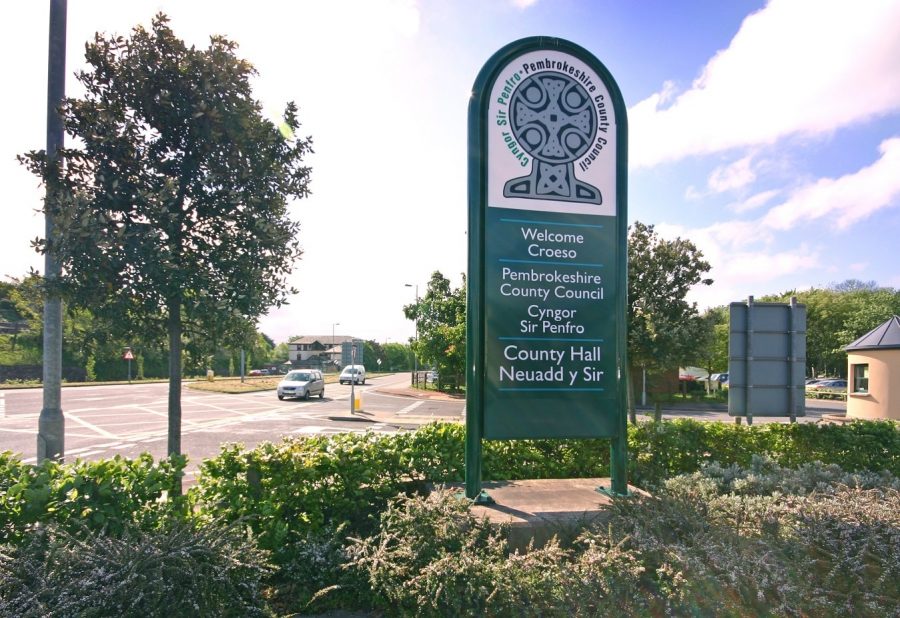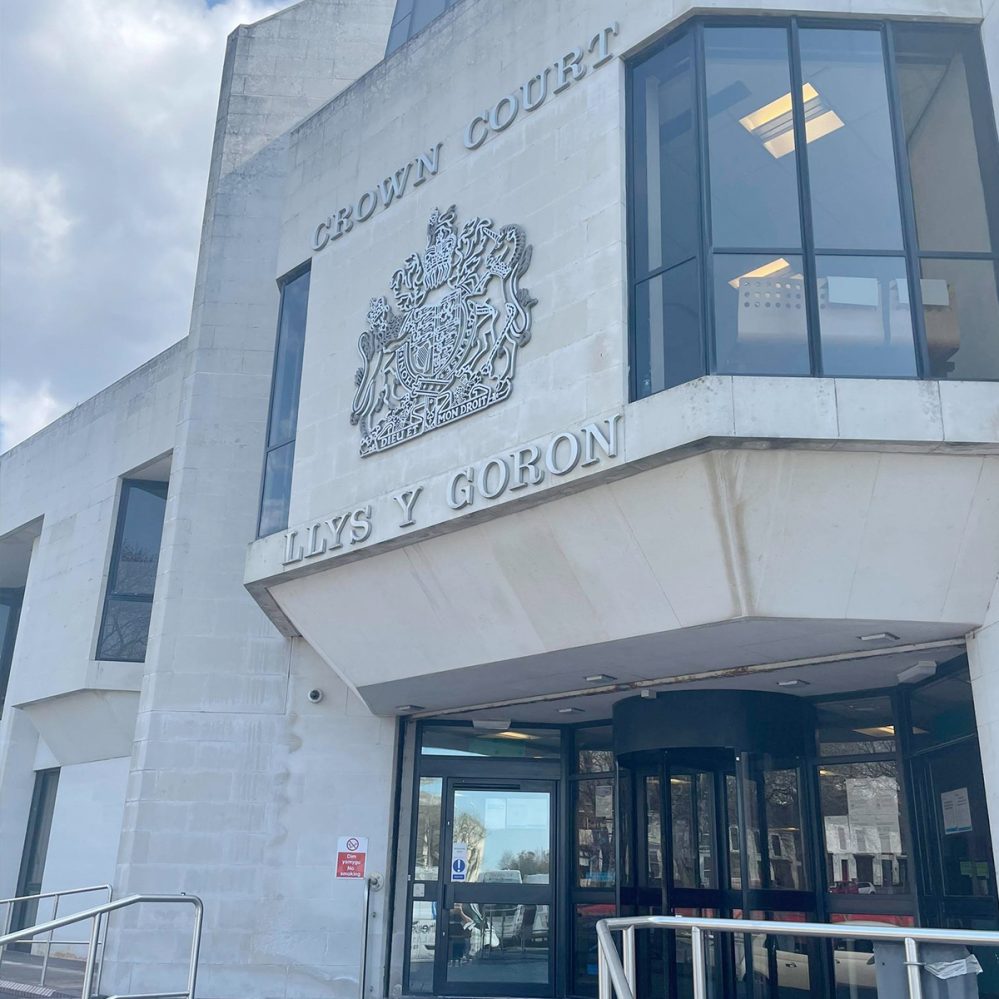News
Procedural row delays vital meeting

A LONG procedural wrangle ate up an hour-and-a-half of time at an Extraordinary Meeting of Full Council this morning.
Councillors met to discuss confidential legal advice arising from the equally secret settlement agreement between the local authority and its former CEO, Mr Ian Westley.
Before the meeting, the Council received a letter from the Association of Local Government Chief Executives – effectively Mr Westley’s trade union – that the settlement agreement’s contents were legally privileged and that Mr Westley had not surrendered his right to have its terms kept secret.
As we reported on Friday (October 8), the Council’s Deputy Monitoring Officer ruled a payoff of £95,000 to Ian Westley was made under the wrong procedure.
The settlement should have been reviewed and voted upon by the Full Council.
Although the Deputy Monitoring Officer’s opinion is a public document, councillors were due to discuss the issues it raises behind closed doors.
Some of the material to inform members’ debate, including advice from a leading barrister, is legally privileged and refers to confidential staffing matters.
An employee’s right to depend on confidentiality is the same as discussions between clients and their solicitors. They cannot be disclosed to someone else.
It’s a classic case where the public interest is not the same as what the public might be interested in.
Apart from the settlement agreement’s terms, internal staffing -particularly potential disciplinary proceedings against named individuals – are never discussed in public.
That is entirely standard practice in any employer/employee relationship, whether the employer is in the public sector or not.
However, several councillors – most notably former Council Leader Jamie Adams – insisted that confidential material could be discussed in public.
Cllr Mike Stoddart tartly welcomed Cllr Adams’s conversion to the principle of transparency in governance.
In doing so, Cllr Adams found himself at odds with the Council’s barrister, Mr Nigel Giffin QC, and the newly appointed Interim Monitoring Officer and Acting Head of Legal, Rhian Young.
Their professional opinions were clear.
Discussing confidential material in public, especially when one party had not waived their right to confidentiality, would leave the Council open to a potentially costly legal challenge.
Cllr David Lloyd – a practising barrister – endorsed their view.
It took Cllr Jonathan Preston to bring some real-world thinking into the proceedings.
He wondered how any councillors considered contradicting very clear legal advice to put the Council Taxpayer at risk of funding more legal costs than those the authority incurred already. Staffing matters were routinely confidential, and the Council was in no different a position than anyone else.
Cllr Mike Williams said that it was surely time to decide how to proceed after going around in circles after an hour and a half.
He proposed the meeting be moved into a private session to discuss the report, noting that doing so would leave councillors free to express opinions on the issues raised by the Council’s QC without putting the Council at any risk of litigation at public expense.
Mike Willams’s proposal was carried by 35 votes to 17 with one abstention.
Shortly afterwards, as Cllr Jacob Williams raised the issue of recording the proceedings, the webcast cut out.
Entertainment
What’s not to love about Prince Nathaniel of Neyland?

VAIN, enthusiastic, dramatic and utterly loveable, Prince Nathaniel of Neyland is set to steal hearts on the Torch Theatre stage this festive season in Rapunzel.
Played by the charismatic Harry Lynn, the flamboyant prince is the sort of pantomime hero audiences can’t help but cheer on, even when he is wildly out of his depth. From the moment he steps on stage, Prince Nathaniel is determined to help Rapunzel at every possible turn – even if bravery doesn’t always come naturally.
Describing the role as “wonderfully silly, enthusiastic, and a big-hearted comedic hero,” Harry says Prince Nathaniel is “the epitome of royal bravery,” striking his dramatic “Prince Pose” whenever the moment allows.
“But in reality, he’s often nervous, dramatic, and hilariously out of his depth,” Harry explained. “He’s pampered, easily flustered, and very vain about his hair – to the point where a haircut at Belinda’s salon becomes a full-on event. Beneath all the bravado, though, he’s loyal, caring, and absolutely determined to do the right thing, especially when Rapunzel needs him.”
Harry, who trained at the Royal Welsh College of Music and Drama, believes audiences will quickly fall for the prince’s perfectly imperfect charm.
“He’s confident but clueless, brave but squeamish, and always trying his best,” he said. “And when it really counts, he genuinely steps up. Whether he fully saves the day… well, this is a pantomime, so every hero needs a little help. Let’s just say he plays an integral part in Rapunzel’s fairytale ending.”
A familiar face to panto fans, Harry has just completed a run as Hunk/Scarecrow in The Wizard of Oz at Aberystwyth Arts Centre and says the festive season is his favourite time of year to perform.
“Panto season is pure joy – loud audiences, lots of laughter, plenty of improvisation, and that special festive atmosphere where anything can happen,” he said. “It’s a theatre experience like no other and the perfect way to celebrate Christmas.”
Prince Nathaniel, however, rarely has a quiet moment on stage. He is chased, sprayed, gunged, electrocuted, bashed in the face, tangled in a complicated ladder sequence – and faints, falls, panics, poses and hides behind Belinda whenever fear takes over.
“It’s a lot,” Harry laughed. “The challenge is keeping the comedy big and bold while still maintaining his charm. Having the Prince arrive in full regal mode, only to be sprayed in the face and gunged by Belinda, is peak panto chaos – huge fun to perform and, hopefully, even more fun to watch.”
Rapunzel – the hair-raising adventure runs at the Torch Theatre from Saturday, December 6 to Sunday, December 28. A Relaxed Environment performance takes place on Saturday, December 13 at 2:00pm, with a BSL-interpreted performance on Tuesday, December 16 at 6:00pm.
Tickets are priced at £24.50, £20.00 concessions, or £78.00 for a family ticket. For more information or to book, visit www.torchtheatre.co.uk or call the Box Office on (01646) 695267.
Crime
Cowboy builders jailed after years of bullying and fraud against homeowners

A FATHER and son who preyed on homeowners across south and west Wales — many of them elderly or in poor health — have been jailed after a court heard how they used intimidation and deception to extract huge sums of money for unnecessary and badly executed building work.
Jim Janes and his son, Thomas James, ran a long-running roofing scam that left dozens of victims facing financial hardship, unfinished homes and costly repair bills.
Swansea Crown Court heard the pair routinely targeted householders with minor repair needs before escalating jobs into major works, demanding ever-increasing payments once roofs had been stripped or damaged.
When questioned or challenged, the defendants became aggressive, leaving victims feeling frightened and pressured into paying. In one case, a homeowner was threatened unless money was handed over.
Passing sentence, Judge Catherine Richards said the defendants showed a “cruel disregard” for the impact of their actions and deliberately manipulated vulnerable people for financial gain.
She told the court the offending was driven by greed and a willingness to exploit those least able to protect themselves.
The court heard the fraud continued for more than five years, during which the defendants traded under multiple business names, changed contact details, and used different bank accounts in an effort to avoid detection.
Lee Reynolds, prosecuting, said the pair often dismantled roofs without consent and left properties exposed to the weather, effectively forcing customers to comply with their demands or face further damage to their homes.
Many victims were in their sixties, seventies and eighties, with some paying tens of thousands of pounds. One homeowner lost £100,000.
Independent experts later found that much of the additional work charged for was unnecessary and that the workmanship carried out was of poor quality. In some cases, jobs were left incomplete, requiring extensive remedial work.
Victims told the court how they had been left anxious, ashamed and financially stretched, with some forced to borrow money or remortgage their homes to cover the costs.
Jim Janes, 55, and Thomas Michael Jim James, 37, both of Llangadog, Carmarthenshire, had previously pleaded guilty to fraudulent trading.
In mitigation, the court heard Janes had worked in the building trade for much of his life, while James was said to have played a lesser role in the operation. However, the judge rejected claims that either man bore reduced responsibility.
Sentencing both men to eight years in prison, Judge Richards said they had acted ruthlessly and without any regard for the harm caused to their victims.
Both defendants will serve 40 per cent of their sentences in custody before being released on licence.
A further hearing will be held on Thursday (May 22) next year to consider confiscation proceedings and the imposition of serious crime prevention orders.
Crime
Cocaine dealers jailed after flooding Aberystwyth streets with drugs

TWO men who supplied cocaine in Aberystwyth have been jailed after police seized large amounts of cash, drugs and weapons during coordinated raids.
Luke Hutton, aged 25, and Lee Mark Walsh, 37, were sentenced at Swansea Crown Court after admitting possession of cocaine with intent to supply and possessing criminal property.
The court heard that police attended Walsh’s flat in Aberystwyth on Thursday (Nov 14) to execute a search warrant. Officers saw several people outside the address, including both defendants. When police approached, Walsh remained at the property while Hutton attempted to flee but was quickly detained.
Walsh, of Yr Hafan, Aberystwyth, was found with cannabis, £160 in cash and a mobile phone. Hutton, of Corporation Street, Aberystwyth, was carrying £8,795 in cash and a phone.
During a strip search in custody, officers recovered a wrap of white powder concealed on Hutton. Further searches uncovered £850 in cash laid out on Walsh’s bed, five mobile phones, a silver knuckleduster and a large kitchen knife hidden beneath the bed.
Police also recovered scales with white powder residue, a bank card contaminated with drug traces, and a further bag of white powder elsewhere in the flat. At Hutton’s address, officers found £1,060 in cash, bicarbonate of soda and empty snap-seal bags, consistent with drug preparation.
Prosecutor Dean Pulling told the court both men were clearly involved in drug supply for financial gain.
Walsh also admitted possession of an offensive weapon and possession of cannabis. He has previous convictions for cannabis offences and failing to comply with a drugs test.
Hutton has a longer record, including offences involving communications, driving matters, domestic abuse and breaching a restraining order.
Mitigating for Walsh, Ryan Bowen said the defendant had experienced a troubled childhood, moving schools frequently, and had struggled with cannabis use from a young age. He said Walsh had shown a strong work ethic and hoped to pursue barbering on release.
Jon Tarrant, representing Hutton, said his client had been heavily addicted to cocaine and that drug use had dominated his life, contributing to the breakdown of relationships, including contact with his two young children.
Sentencing, Judge Vanessa Francis said both men had been involved in dealing with the expectation of making “significant financial gain”.
Addressing Hutton, she said: “You told the author of the pre-sentence report that when your benefits stopped, you ‘did what you had to do’. This court will do what it has to do to take off the streets those who spread the misery of drug supply.”
After reductions for guilty pleas, Hutton was jailed for three years and Walsh for 32 months. Both will serve up to half of their sentences in custody before being released on licence.
-

 Crime4 days ago
Crime4 days agoMilford Haven man jailed after drunken attack on partner and police officers
-

 News6 days ago
News6 days agoDyfed-Powys Police launch major investigation after triple fatal crash
-

 Crime3 days ago
Crime3 days agoTeenager charged following rape allegation at Saundersfoot nightclub
-

 Crime4 days ago
Crime4 days agoMan charged with months of coercive control and assaults
-

 Crime5 days ago
Crime5 days agoMan sent to Crown Court over historic indecent assault allegations
-

 Crime5 days ago
Crime5 days agoMilford Haven man admits multiple offences after A477 incident
-

 Crime7 days ago
Crime7 days agoTrefin dog case ends in forfeiture order after protection notice breach
-

 Crime4 days ago
Crime4 days agoWoman ‘terrified in own home’ after ex breaches court order




























